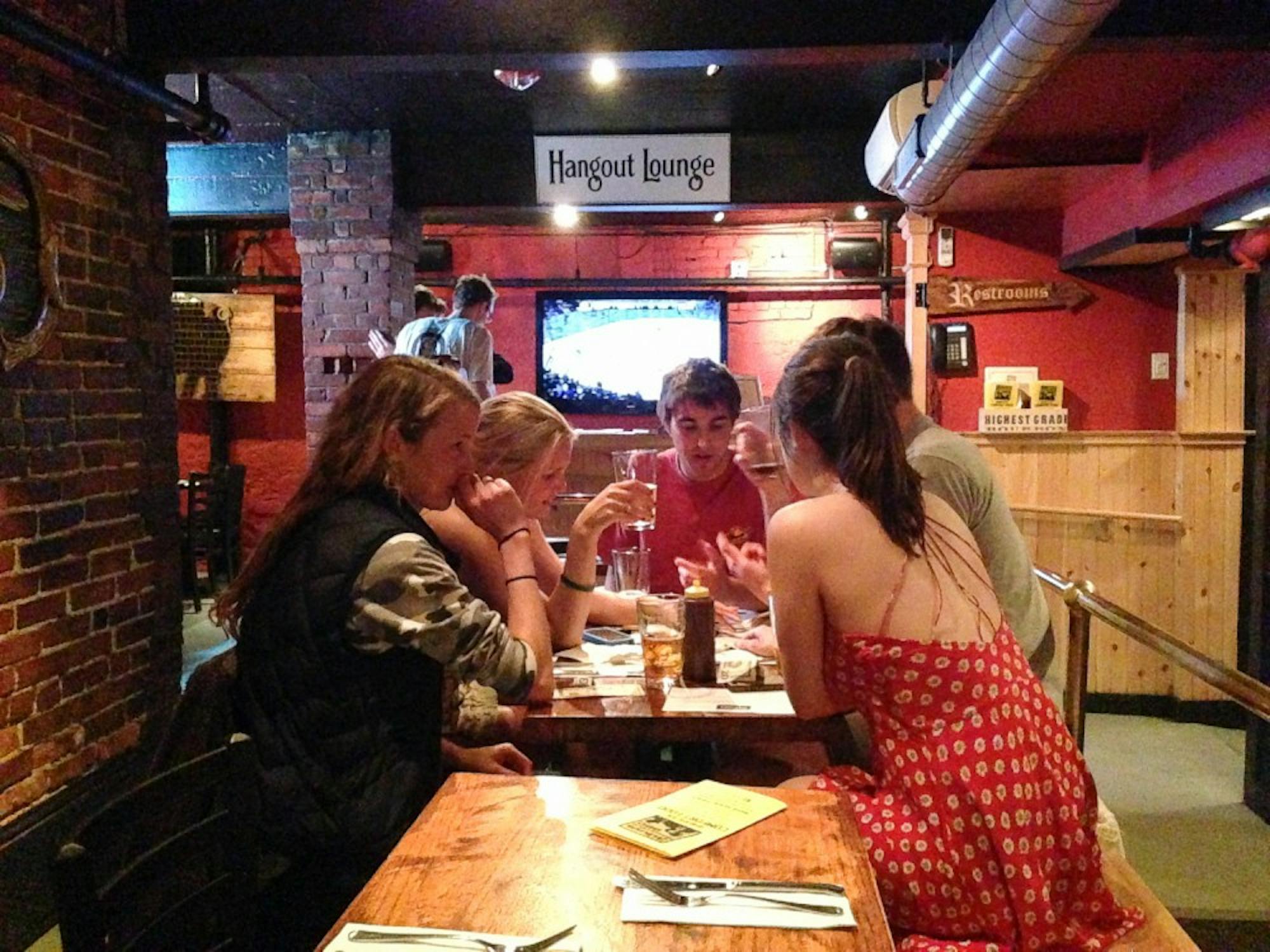Surrounded by red walls and decor reminiscent of the Memphis blues scene, teams of students and community members hunched over tables in 3 Guys Basement Barbecue for a card game Wednesday night as part of a paid research study hosted by Tiltfactor Laboratory, an interdisciplinary studio that designs and studies games that promote social change.
Postdoctoral researcher in psychology Geoff Kaufman said study participants played a party card game resembling “Apples to Apples.” The study, he said, analyzes the social impact of this type of game on players.
Tiltfactor team member Cooper Thomas ’14, who facilitated the focus group session at 3 Guys, said that the study explores group dynamics within the setting of certain party games.
“When you get a group of people together playing a game, you enter this different space in which the typical norms may or may not be accepted, or people may be more candid than they would outside or perhaps the inverse,” Thomas said.
Conducting focus groups at 3 Guys, Kaufman said, targeted participant populations Tiltfactor had not previously reached and provided a more natural setting for group games. Previous studies have been conducted in Tiltfactor Laboratory, Howe Library and elementary, middle and high schools, with subjects mostly consisting of students.
A total of 13 people attended the session at 3 Guys, while 16 more attended a simultaneous session held on campus.
Wednesday’s session took place during the second consecutive week of focus groups, which comprise different participants each time, Tiltfactor game designer Max Seidman ’12 said.
Tiltfactor will likely run several more focus groups based on the strong response it received after advertising the sessions, Seidman said.
Though Kaufman could not elaborate on the specific goals of the focus groups for the sake of study confidentiality, he said that other games developed by Tiltfactor concentrate on constructing ways for participants to overcome social bias and explore positive and negative interpersonal dynamics.
“Games can be a catalyst for thinking about society or social issues differently,” Kaufman said. “We’re trying to get people to explore issues they might not outside the game.” Tiltfactor interns, fellows and design assistants conceive and pitch research projects, Kaufman said, and the team draws upon cross-disciplinary collaboration to develop each game’s narratives and mechanics before constructing paper prototypes. Afterward, the team tests the game, placing a particular emphasis on measuring its social impact.
Tiltfactor is currently seeking subjects to help test its single-player and multiplayer games, and generally compensates its participants at a comparable level to psychology research studies, Kaufman said.
Seidman, who interned at Tiltfactor as an undergraduate and has worked there full-time since graduation, said he has focused on developing games that combat gender bias in science, technology, engineering and math fields. He is also developing a game called Luminaries, which portrays female historical luminaries in STEM fields to young game players.
Awkward Moment and Buffalo, two of Tiltfactor’s existing games, have been successfully shown to reduce bias in a single play, Seidman said.
Other ongoing Tiltfactor projects include a digital game combating climate change and metadata games that employ crowdsourcing techniques while contributing to public archives.
Seidman added that the 3 Guys study involved both games that Tiltfactor had invented and some they had not.
Mariah Capron, of Lebanon, said she decided to attend the focus group on Wednesday after receiving an email about the study because she would get paid for playing games in a restaurant setting.
Tiltfactor, created and headed by digital humanities professor Mary Flanagan, develops social games that reduce bias and promote wellness by utilizing psychological principles and empirical research. The laboratory operates out of the Black Family Visual Arts Center and receives funding from the National Endowment for the Humanities, the National Science Foundation and other research groups.




